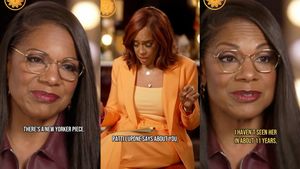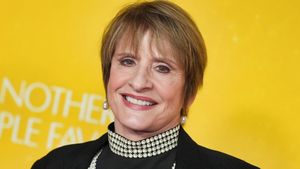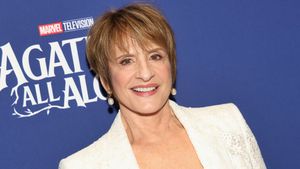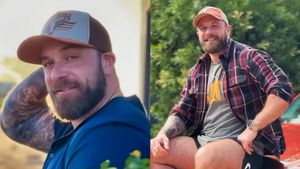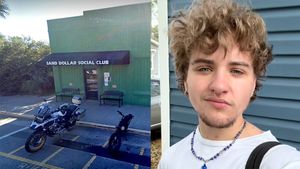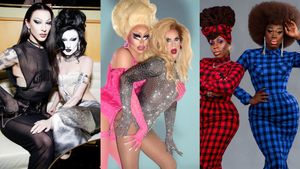Since the 2016 election there has been much talk of the divides in this country -- between Republicans and Democrats, conservatives and progressives, the wealthy and the working class, and rural and urban folks. LGBTQ people are, of course, not monolithic -- we do not all live in New York or California, and do not exclusively live in urban communities.
In 2014, several years before this past election, the National Center for Lesbian Rights launched its Rural Pride campaign to elevate and address the needs of LGBTQ people living in rural communities across the country, challenge the stereotype that LGBTQ people live only in metropolitan areas, and raise awareness of the particular issues faced by LGBTQ rural communities, including increased rates of economic insecurity, lack of nondiscrimination protections, and the heightened challenges facing rural LGBTQ youth and people of color. As part of this campaign, NLCR has hosted a series of convenings to bring people together and explore the issues that are most pressing in that community.
This past Friday, we went to Plainfield, Vt. Working with Green Mountain Crossroads, we brought people together at Goddard College for a day to talk about our families, our health care, particular challenges facing LGBTQ youth and seniors, the state of LGBTQ rights in the Trump era, and more. Some clear themes emerged. There were feelings of isolation and a yearning for connection and visibility. Rural Pride participants expressed a need to both find each other and be seen -- within their communities and by the broader world. One man remarked with amusement that when four gay people found themselves in a conversation at a local event, they jokingly referred to it as "the Castro District of Hancock."
People living in a rural area may at times feel isolated by sheer geography. But if you are gay or trans in such a space, that isolation can be compounded by feeling unsafe revealing one's true self. While the need for connection was palpable, the means for achieving it were not obvious. LGBTQ people in rural areas don't necessarily want to have to travel to an urban place to find community with other LGBT people. They have the right and the need to be safe where they are.
The internet may not be a reliable source for connection and community among rural LGBTQ community members, due to challenges some rural people may face with accessing reliable cell service or internet. Additionally, not all LGBTQ people feel safe in online spaces that can be hacked, trolled, or surveilled. Community centers are vital and more are needed.
The challenges of isolation and homophobia can be particularly acute for LGBTQ youth, often subjected to excruciating peer scrutiny and cruelty, as well as for seniors, who are more likely than their urban counterparts to face aging alone without the support of a community.
Visibility -- the need for it as well as the risks of it -- was another consistent theme throughout the day's conversations. Attendees described a sort of dual invisibility -- not being seen for who they really are in their small communities, and also feeling overlooked by the broader LGBTQ community that is more concentrated in urban places, as well as by government agencies and funders, which tend to concentrate resources in population centers to get greater "bang for the buck."
But hope and inspiration were also abundant, as two openly gay Vermont state legislators addressed the gathering and described their journeys. Not immune from homophobic attacks themselves, they nonetheless embody the power of visibility and being represented in places where decisions are being made. They challenged those gathered to take individual risks, have difficult conversations, and bring their full authentic selves to their communities, which are otherwise deprived of their gifts.
Being queer and rural are not in conflict; being a queer farmer is not an oxymoron. Living in a rural community does not mean someone necessarily supports the divisive rhetoric and policies of Donald Trump. LGBTQ people want the world to know this. We are everywhere and we are not going anywhere -- and that's a good thing. We enrich our rural communities when we stay.
National organizations need to look to our rural communities and see and listen to what is happening there. In this era in our country, when so much is made of what divides us, particularly along urban-rural lines, our LGBTQ rural community is exactly where we need to be looking to start finding new approaches and common ground. The folks there have much to teach us if we will pay attention, which is what Rural Pride is all about. We at NCLR intend to continue visiting these communities and having these necessary conversations, so that all of our community's voices are lifted up. Now more than ever we cannot leave anyone behind.
JULIANNA S. GONEN is policy director for the National Center for Lesbian Rights.















